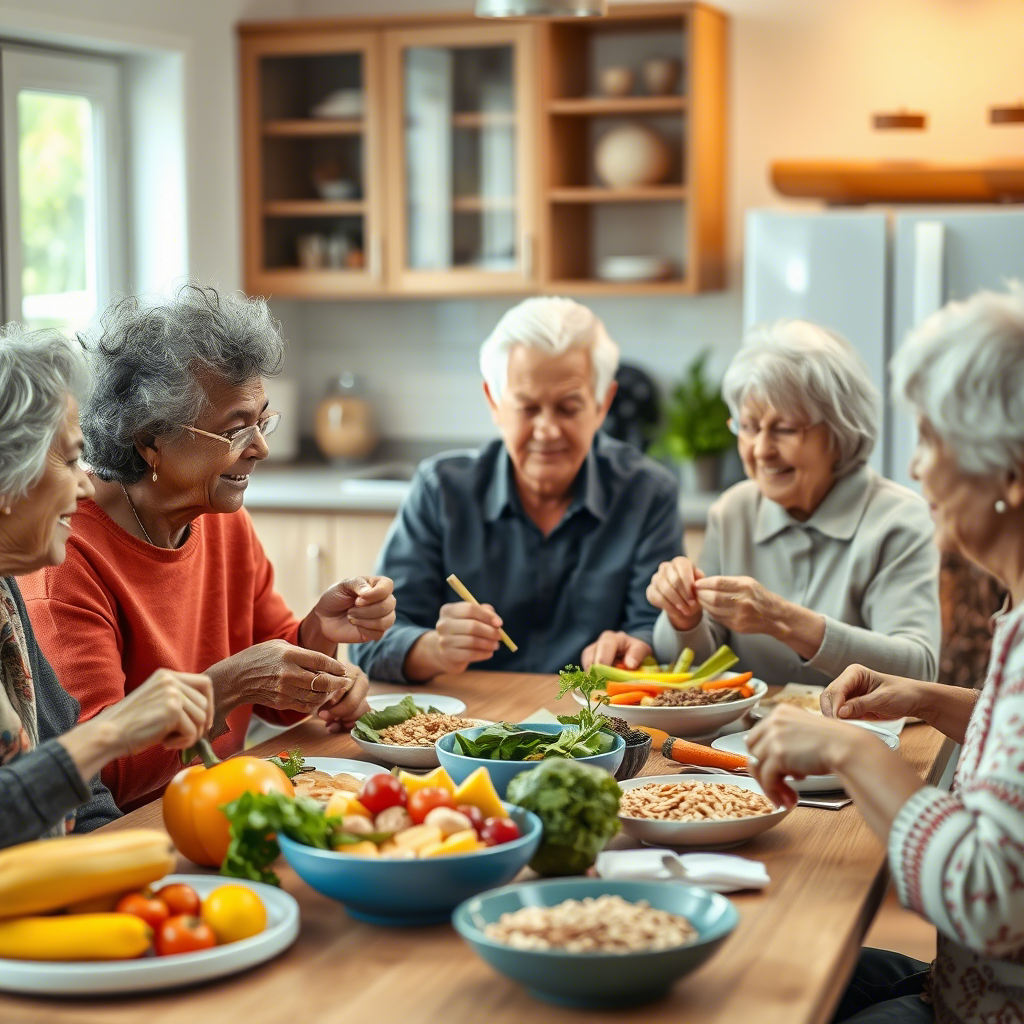
As we age, our bodies change—and so do their needs. The same eating habits that fueled us in our 20s and 30s can quietly drain our energy after 50. This isn’t about aging causing inevitable decline; it’s about adjusting to what your body truly needs now.
Here are six common eating habits that may be stealing your energy—and actionable steps to turn things around.
1. Still Eating Like You’re 30
At 30, you could devour a double cheeseburger at midnight and wake up ready to conquer the day. But by 50, your metabolism slows down significantly. According to a study led by Dr. Herman Pontzer at Duke University, metabolic rate drops by up to 30% after age 50. Your pancreas releases insulin more slowly, and stomach acid decreases, making digestion harder.
When you eat the same portions or indulge in late-night snacks, undigested carbs trigger prolonged insulin spikes, leaving you foggy and drained.
What to Do Instead:
- Cut portions by 20–25%.
- Opt for lighter evening meals like soups, roasted vegetables, or grilled fish.
- Try dishes like miso soup with grilled salmon and steamed bok choy drizzled with olive oil.
You’ll sleep deeper, digest better, and wake up refreshed.
2. Skipping Breakfast (or Eating the Wrong One)
Intermittent fasting has gained popularity, but skipping breakfast after 50 often backfires. A 2020 study published in The Journal of Clinical Endocrinology & Metabolism found that skipping breakfast lowers resting metabolic rate and increases insulin resistance—a recipe for energy crashes.
Even worse? Many “healthy” breakfasts—like cereal, toast, and juice—are packed with refined carbs. These spike blood sugar within 90 minutes, followed by an energy crash.
What to Do Instead:
- Eat within one hour of waking.
- Keep it simple: boiled eggs, avocado, walnuts, and green tea or black coffee.
- Focus on complex, low-glycemic carbs.
This approach supports hormone balance and provides steady energy throughout the day.
3. Grazing on “Healthy” Processed Snacks
Granola bars, trail mix, and low-fat yogurt might seem nutritious, but they’re often loaded with added sugars, refined carbs, and inflammatory seed oils. After 50, even small snacks can throw off your blood sugar and contribute to chronic inflammation.
Dr. Nir Barzilai’s research shows that insulin sensitivity declines naturally with age, making it harder to process sugar efficiently. Chronic inflammation accelerates aging and impairs cognitive function.
What to Do Instead:
- Ditch packaged snacks.
- Snack smarter: boiled eggs, olives, cheese slices, or raw almonds.
- Better yet, aim to eliminate snacking altogether by eating balanced meals rich in protein, fiber, and healthy fats.
Real food fuels your body without the hidden costs.
4. Eating Too Much Dinner, Too Late
A big dinner late in the evening might feel rewarding, but it disrupts sleep and drains energy. As we age, digestion slows, and the liver processes alcohol less efficiently. Eating too close to bedtime forces your body to work all night instead of resting.
Research from the University of Michigan and Northwestern University shows that eating within an hour of bedtime increases nighttime awakenings, reducing deep, restorative sleep. Alcohol worsens the problem by degrading REM sleep critical for memory and mood.
What to Do Instead:
- Finish your last full meal 3–4 hours before bed.
- Make dinner light: grilled vegetables, broth-based soups, or lean proteins like fish.
- Limit alcohol to one drink or avoid it during the week.
Better sleep means better energy the next day.
5. Believing the Myth of “Low-Fat” Living
In the 1980s and 90s, fat was vilified as the enemy. The USDA’s Food Pyramid encouraged carb-heavy diets while demonizing fats. This led to a surge in low-fat products pumped with added sugars and industrial oils.
But science has evolved. Healthy fats—like omega-3s from fatty fish, monounsaturated fats from olive oil and avocados, and moderate saturated fats from pastured meat—are essential for brain health, hormone balance, and stable energy levels.
A Harvard study published in The BMJ followed over 200,000 people for 30 years. Those who replaced refined carbs with healthy fats had lower rates of cardiovascular disease, inflammation, and better cognitive function as they aged.
What to Do Instead:
- Stop fearing fat. Ditch low-fat yogurts, spreads, and dressings.
- Add avocado to breakfast and cook with olive oil.
- Eat fatty fish like salmon twice a week.
Fat doesn’t drain energy—it fuels it.
6. Drinking Too Much Coffee—The Wrong Way
Coffee itself isn’t the issue; timing is. Caffeine has a half-life of 6–10 hours, meaning that afternoon cup could still be in your system at bedtime. After 50, the liver clears caffeine less efficiently, disrupting sleep cycles.
Dr. Marilyn Cornelis’s research using actigraphy revealed that people over 50 who consumed moderate caffeine experienced more sleep interruptions and elevated nighttime cortisol levels. Even if you think you’re sleeping fine, data shows broken sleep stages and lighter rest.
What to Do Instead:
- Wait 60–90 minutes after waking for your first cup.
- Avoid caffeine after 2 p.m. Pair coffee with fat or protein (like boiled eggs or almonds) to stabilize blood sugar.
- Switch to green tea, herbal tea, lemon water, or decaf in the afternoon.
Timing caffeine intake ensures you reap its benefits without sacrificing sleep.
Final Thoughts
You don’t need a radical diet overhaul or extreme lifestyle changes. Small adjustments tailored to your age can reset your energy in surprising ways.
After 50, the body becomes more sensitive—not weaker. What worked in your younger years may now work against you. By cutting back on late-night meals, switching from processed snacks to whole foods, and embracing healthy fats, you can reclaim your vitality.
I’ve seen this transformation firsthand with my dad. Within weeks of making these changes, his energy soared, his sleep improved, and his afternoons were no longer dominated by fatigue.
Your energy isn’t lost—it’s being stolen, one forkful at a time. It’s time to take it back.


